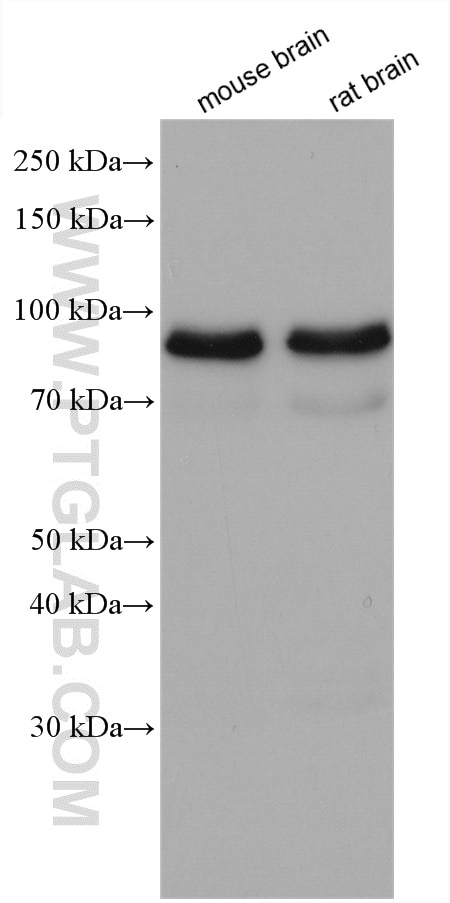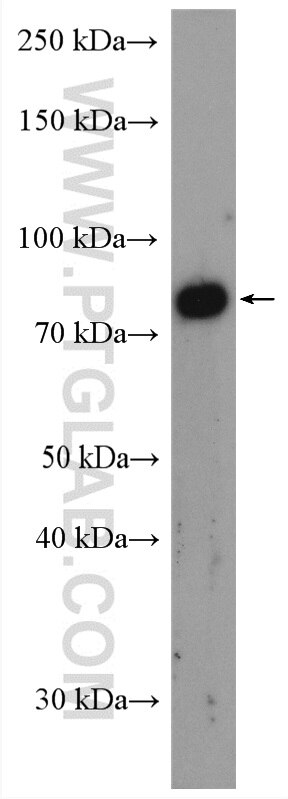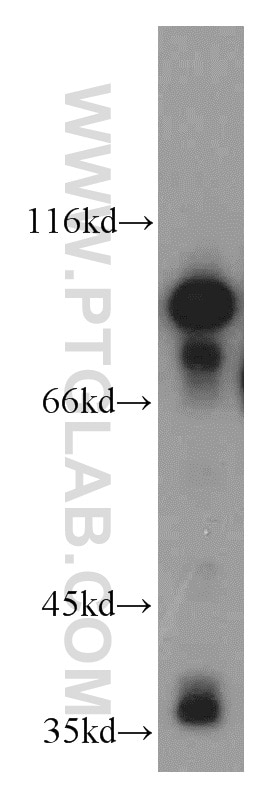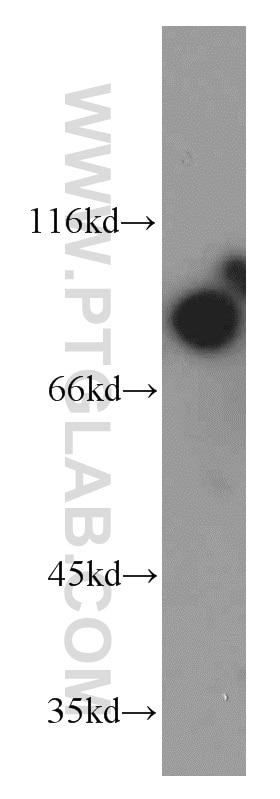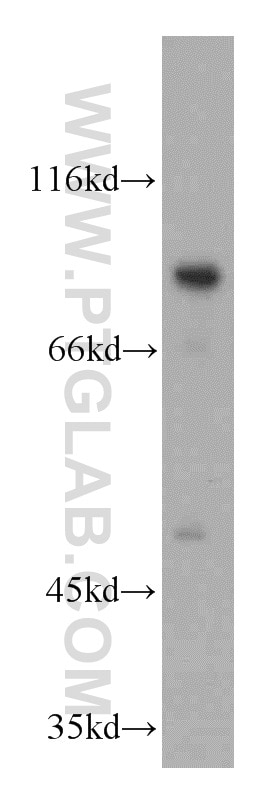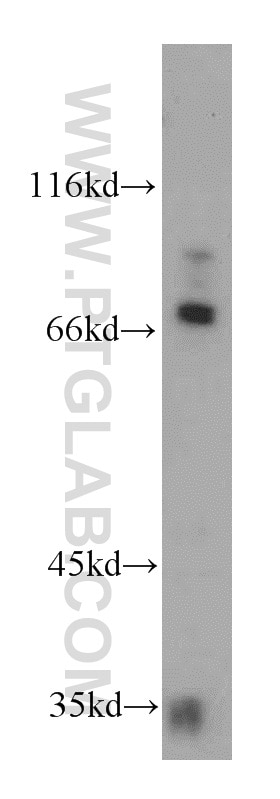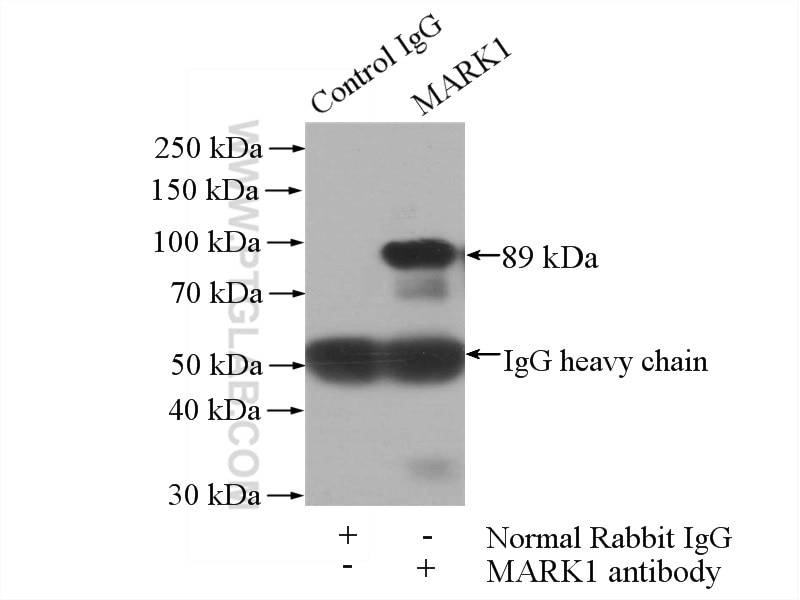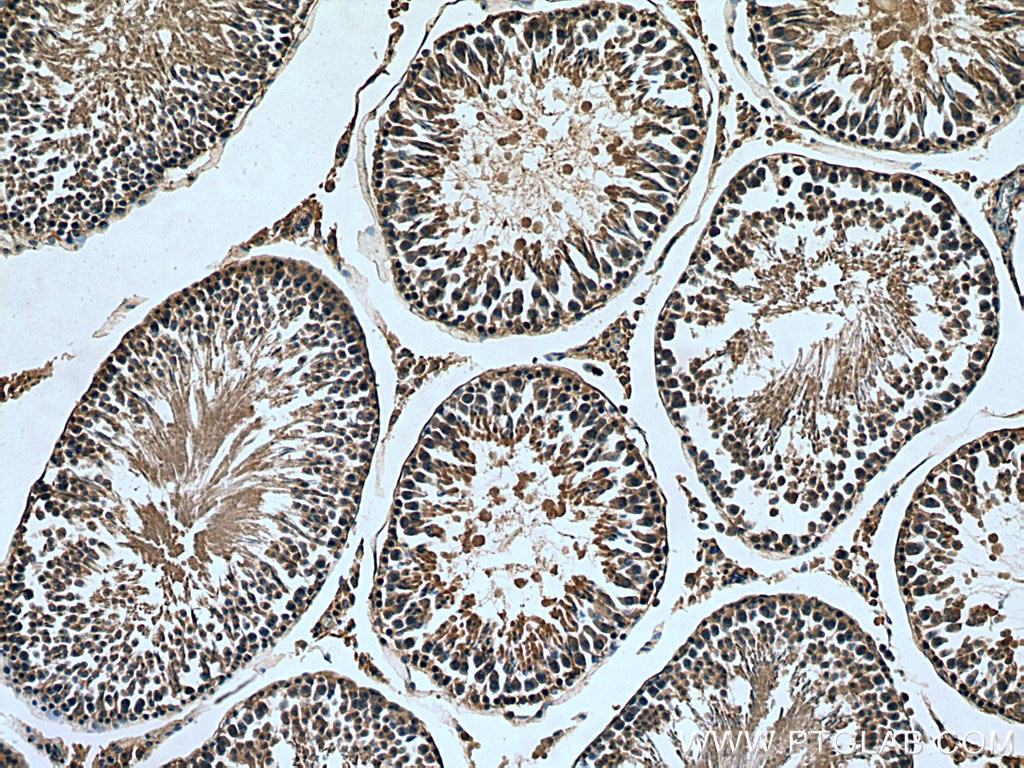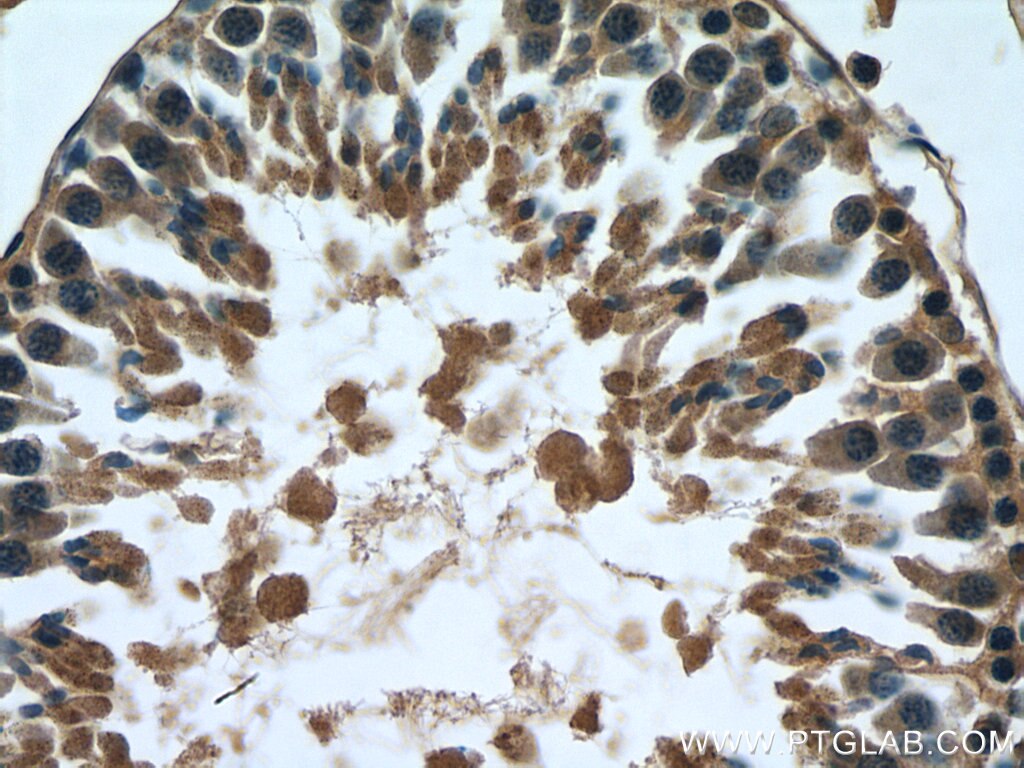- Featured Product
- KD/KO Validated
MARK1 Polyklonaler Antikörper
MARK1 Polyklonal Antikörper für IHC, IP, WB,ELISA
Wirt / Isotyp
Kaninchen / IgG
Getestete Reaktivität
human, Maus, Ratte
Anwendung
WB, IP, IHC, ELISA
Konjugation
Unkonjugiert
Kat-Nr. : 21552-1-AP
Synonyme
Galerie der Validierungsdaten
Geprüfte Anwendungen
| Erfolgreiche Detektion in WB | Maushirngewebe, HeLa-Zellen, Mausnierengewebe, Rattenhirngewebe, SH-SY5Y-Zellen |
| Erfolgreiche IP | Maushirngewebe |
| Erfolgreiche Detektion in IHC | Rattenhodengewebe Hinweis: Antigendemaskierung mit TE-Puffer pH 9,0 empfohlen. (*) Wahlweise kann die Antigendemaskierung auch mit Citratpuffer pH 6,0 erfolgen. |
Empfohlene Verdünnung
| Anwendung | Verdünnung |
|---|---|
| Western Blot (WB) | WB : 1:1000-1:6000 |
| Immunpräzipitation (IP) | IP : 0.5-4.0 ug for 1.0-3.0 mg of total protein lysate |
| Immunhistochemie (IHC) | IHC : 1:50-1:500 |
| It is recommended that this reagent should be titrated in each testing system to obtain optimal results. | |
| Sample-dependent, check data in validation data gallery | |
Veröffentlichte Anwendungen
| KD/KO | See 4 publications below |
| WB | See 9 publications below |
| IP | See 2 publications below |
Produktinformation
21552-1-AP bindet in WB, IP, IHC, ELISA MARK1 und zeigt Reaktivität mit human, Maus, Ratten
| Getestete Reaktivität | human, Maus, Ratte |
| In Publikationen genannte Reaktivität | human, Maus, Ratte |
| Wirt / Isotyp | Kaninchen / IgG |
| Klonalität | Polyklonal |
| Typ | Antikörper |
| Immunogen | MARK1 fusion protein Ag16225 |
| Vollständiger Name | MAP/microtubule affinity-regulating kinase 1 |
| Berechnetes Molekulargewicht | 795 aa, 89 kDa |
| Beobachtetes Molekulargewicht | 85-89 kDa, 72 kDa |
| GenBank-Zugangsnummer | BC113869 |
| Gene symbol | MARK1 |
| Gene ID (NCBI) | 4139 |
| Konjugation | Unkonjugiert |
| Form | Liquid |
| Reinigungsmethode | Antigen-Affinitätsreinigung |
| Lagerungspuffer | PBS mit 0.02% Natriumazid und 50% Glycerin pH 7.3. |
| Lagerungsbedingungen | Bei -20°C lagern. Nach dem Versand ein Jahr lang stabil Aliquotieren ist bei -20oC Lagerung nicht notwendig. 20ul Größen enthalten 0,1% BSA. |
Hintergrundinformationen
MARK1, also named as MAP-microtubule affinity regulating kinase 1, which form a subfamily of the calcium/calmodulin-dependent protein kinase (CAMP) group of kinases(PMID: 22670221).It is involved in cell polarity by phosphorylating the microtubule-associated proteins MAP2, MAP4 and MAPT/TAU at KXGS motifs, causing detachment from microtubules, and their disassembly. MARK1 also act as a regulator of the neuronal migration and Wnt signaling pathway.It has 3 isoforms which molecular weight is 89,84,72 kDa. This antibody may detect all of the isoforms.
Protokolle
| Produktspezifische Protokolle | |
|---|---|
| WB protocol for MARK1 antibody 21552-1-AP | Protokoll herunterladen |
| IHC protocol for MARK1 antibody 21552-1-AP | Protokoll herunterladen |
| IP protocol for MARK1 antibody 21552-1-AP | Protokoll herunterladen |
| Standard-Protokolle | |
|---|---|
| Klicken Sie hier, um unsere Standardprotokolle anzuzeigen |
Publikationen
| Species | Application | Title |
|---|---|---|
Mol Cell An AMPK-Independent Signaling Pathway Downstream of the LKB1 Tumor Suppressor Controls Snail1 and Metastatic Potential.
| ||
Nat Commun TNK1 is a ubiquitin-binding and 14-3-3-regulated kinase that can be targeted to block tumor growth.
| ||
Cell Rep DIXDC1 Phosphorylation and Control of Dendritic Morphology Are Impaired by Rare Genetic Variants. | ||
Cell Commun Signal Doublecortin undergo nucleocytoplasmic transport via the RanGTPase signaling to promote glioma progression. | ||
J Biol Chem Postsynaptic density 95 (PSD-95) serine 561 phosphorylation regulates a conformational switch and bidirectional dendritic spine structural plasticity. | ||
PLoS One MARK/Par1 Kinase Is Activated Downstream of NMDA Receptors through a PKA-Dependent Mechanism. |
Rezensionen
The reviews below have been submitted by verified Proteintech customers who received an incentive forproviding their feedback.
FH Manish (Verified Customer) (06-09-2020) | The antibody works really well. We dilute it 10 fold and still get strong bands on western blots.
|
